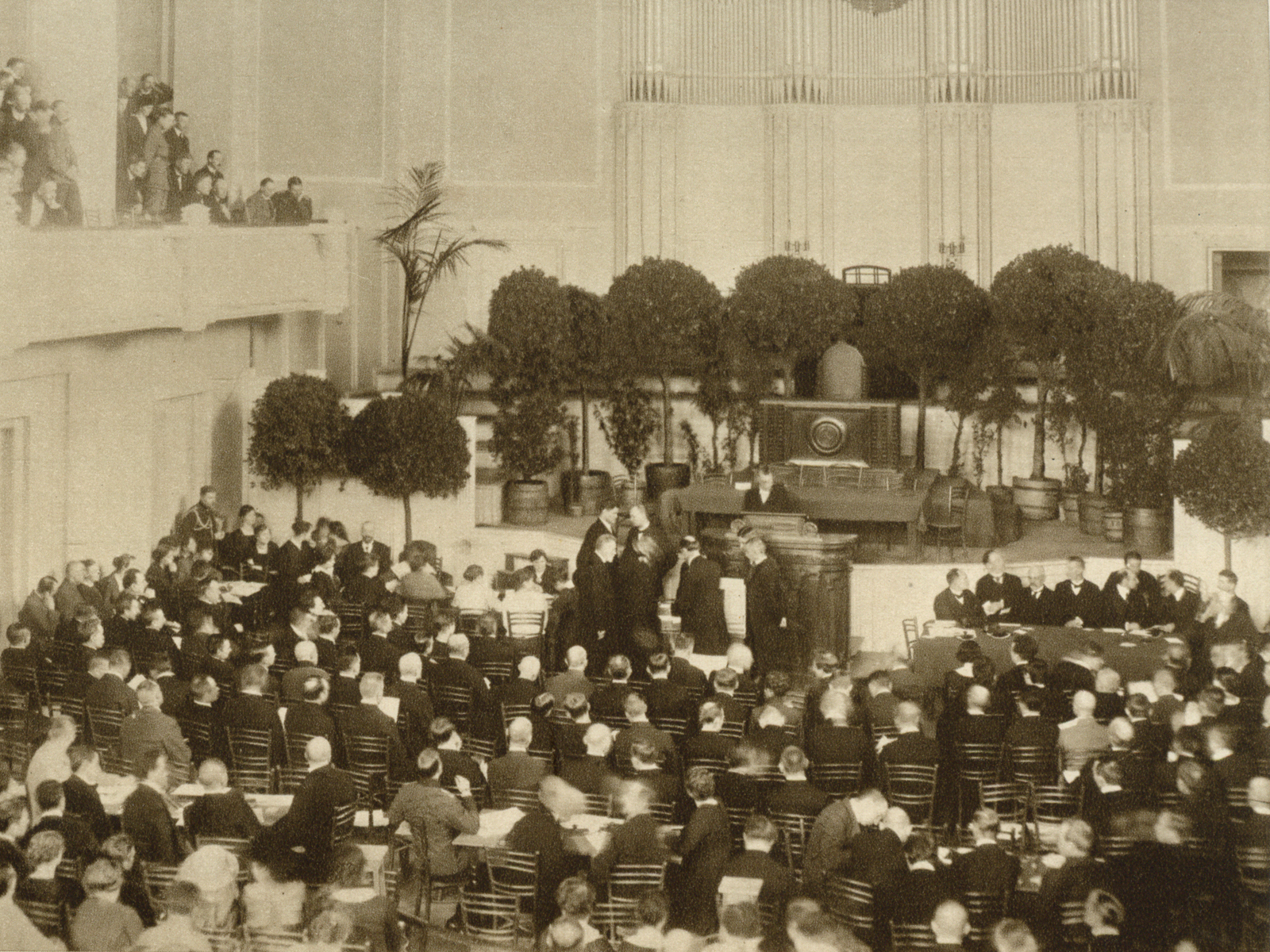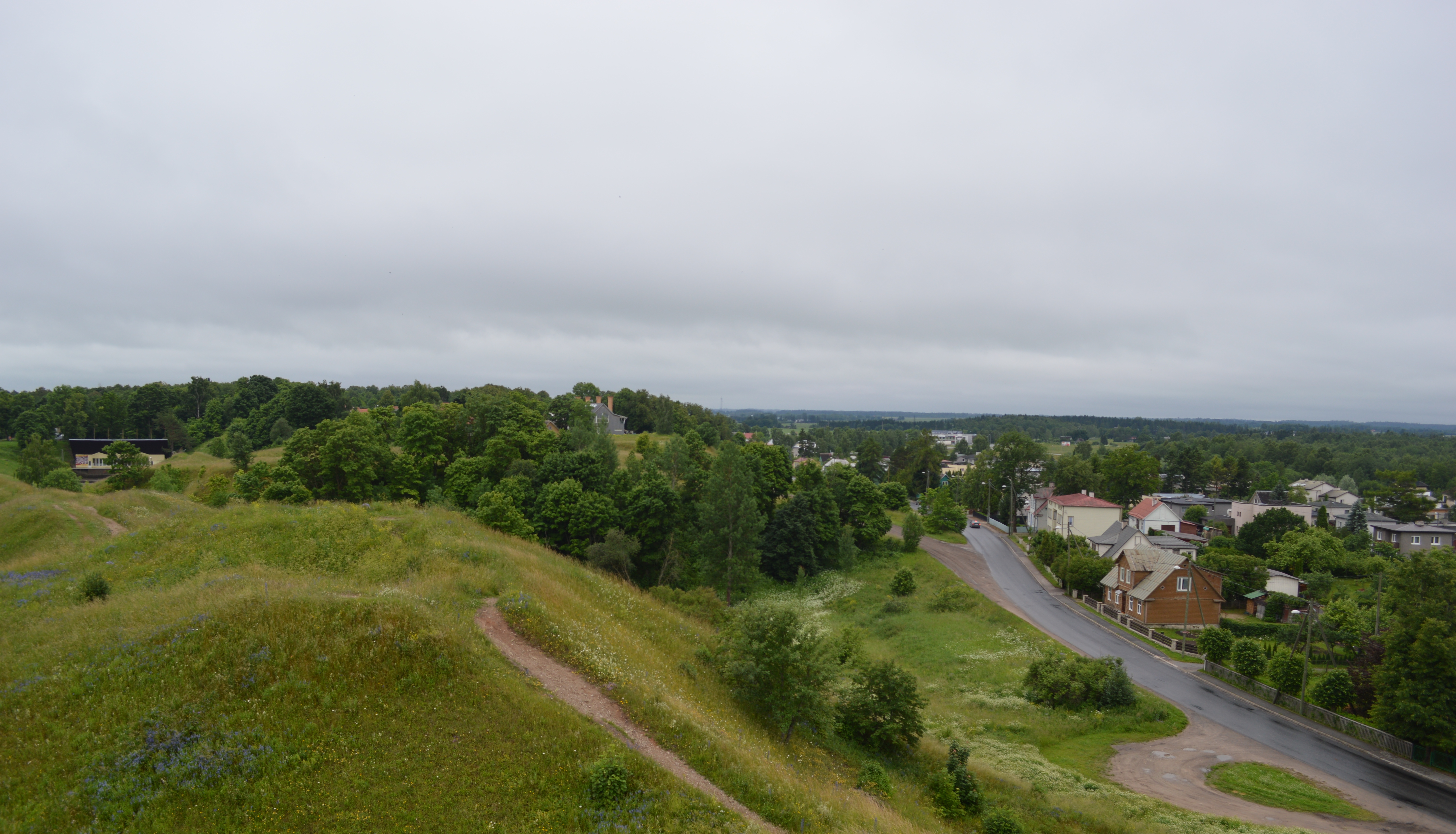|
Kristjan Haho
Kristjan Haho (also Kristjaan Haho; 5 February 1877 – 18 December 1937) was an Estonian lawyer, judge and politician. He was a member of Estonian Constituent Assembly. He was a member of the assembly since 23 April 1919. He replaced Julius Grünberg. Haho was born in Oonurme. He graduated in 1913 from the Faculty of Law of the University of Tartu. He worked as a lawyer in Rakvere and Tallinn Tallinn () is the most populous and capital city of Estonia. Situated on a bay in north Estonia, on the shore of the Gulf of Finland of the Baltic Sea, Tallinn has a population of 437,811 (as of 2022) and administratively lies in the Harju ' ..., a justice of the peace in Tallinn in 1919, a member of the Constituent Assembly, and a judge in Tallinn from 1920 until 1932. In 1935, he returned to his home village of Oonurme, where he died in to 1937. He is buried in Rakvere City Cemetery. References {{DEFAULTSORT:Haho, Kristjan 1877 births 1937 deaths People from Alutaguse Parish ... [...More Info...] [...Related Items...] OR: [Wikipedia] [Google] [Baidu] |
Estonia
Estonia, formally the Republic of Estonia, is a country by the Baltic Sea in Northern Europe. It is bordered to the north by the Gulf of Finland across from Finland, to the west by the sea across from Sweden, to the south by Latvia, and to the east by Lake Peipus and Russia. The territory of Estonia consists of the mainland, the larger islands of Saaremaa and Hiiumaa, and over 2,200 other islands and islets on the eastern coast of the Baltic Sea, covering a total area of . The capital city Tallinn and Tartu are the two largest urban areas of the country. The Estonian language is the autochthonous and the official language of Estonia; it is the first language of the majority of its population, as well as the world's second most spoken Finnic language. The land of what is now modern Estonia has been inhabited by '' Homo sapiens'' since at least 9,000 BC. The medieval indigenous population of Estonia was one of the last " pagan" civilisations in Europe to adopt Ch ... [...More Info...] [...Related Items...] OR: [Wikipedia] [Google] [Baidu] |
Estonian Constituent Assembly
The Estonian Constituent Assembly ( et, Asutav Kogu) was elected on 5–7 April 1919, called by the Estonian Provisional Government during the Estonian War of Independence. Estonian Constituent Assembly elections Activity The 120 members of the Constituent Assembly met at the opening session on 23 April 1919, the birthday of the Estonian Parliament and elected the chairman, Social Democrat August Rei. On 7 May the Assembly passed the Public Elementary Schools Act: The principle of compulsory and free primary 6-year elementary school education was established. On 8 May 1919 the Estonian provisional government resigned, and the first fully democratically elected Government of Estonia headed by Prime Minister Otto Strandman (Estonian Labor Party) took office. On 15 May the assembly reaffirmed the Estonian Declaration of Independence, aimed at the international community for recognizing Estonia as an independent state. On 4 June 1919 the Assembly adopted a temporary Constitutio ... [...More Info...] [...Related Items...] OR: [Wikipedia] [Google] [Baidu] |
Julius Grünberg
Julius Tarmisto (or Julius Grünberg; 14 December 1890 Otepää – 4 September 1956 Tallinn) was an Estonian politician. He was a member of the Estonian Constituent Assembly. On 23 April 1919, he resigned his position and he was replaced by Kristjan Haho Kristjan Haho (also Kristjaan Haho; 5 February 1877 – 18 December 1937) was an Estonian lawyer, judge and politician. He was a member of Estonian Constituent Assembly. He was a member of the assembly since 23 April 1919. He replaced Julius Grün .... References {{DEFAULTSORT:Tarmisto, Julius 1890 births 1956 deaths People from Otepää People from Kreis Dorpat Farmers' Assemblies politicians Members of the Estonian Constituent Assembly ... [...More Info...] [...Related Items...] OR: [Wikipedia] [Google] [Baidu] |
Oonurme
Oonurme is a village in Alutaguse Parish, Ida-Viru County in northeastern Estonia Estonia, formally the Republic of Estonia, is a country by the Baltic Sea in Northern Europe. It is bordered to the north by the Gulf of Finland across from Finland, to the west by the sea across from Sweden, to the south by Latvia, a .... (retrieved 28 July 2021) References Villages in Ida-Viru County Alutaguse Parish Kreis Wierland {{IdaViru-geo-stub ... [...More Info...] [...Related Items...] OR: [Wikipedia] [Google] [Baidu] |
Rakvere
Rakvere is a town in northern Estonia and the administrative centre of the Lääne-Viru ''maakond'' (county), 20 km south of the Gulf of Finland of the Baltic Sea. Rakvere is the 8th most populous urban area in Estonia. Rakvere has a total area of 10.75 square kilometres, and although about 15% of it is covered by forest, the city is still populated so densely as to make it the third most densely populated city in Estonia. From the 13th century until the early 20th century, Rakvere was more widely known by its historical German name, ''Wesenberg(h)''. History The earliest signs of human settlement dating back to the 3rd–5th centuries AD have been found on the present theatre hill. Probably to protect that settlement, a wooden stronghold was built on the present-day Vallimägi. Soon after the kingdom of Denmark had conquered northern Estonia, in 1220, the new rulers started to erect stone buildings. A settlement called ''Tarvanpea'' was first mentioned in the Chronicle ... [...More Info...] [...Related Items...] OR: [Wikipedia] [Google] [Baidu] |
Tallinn
Tallinn () is the most populous and capital city of Estonia. Situated on a bay in north Estonia, on the shore of the Gulf of Finland of the Baltic Sea, Tallinn has a population of 437,811 (as of 2022) and administratively lies in the Harju ''maakond'' (county). Tallinn is the main financial, industrial, and cultural centre of Estonia. It is located northwest of the country's second largest city Tartu, however only south of Helsinki, Finland, also west of Saint Petersburg, Russia, north of Riga, Latvia, and east of Stockholm, Sweden. From the 13th century until the first half of the 20th century, Tallinn was known in most of the world by variants of its other historical name Reval. Tallinn received Lübeck city rights in 1248,, however the earliest evidence of human population in the area dates back nearly 5,000 years. The medieval indigenous population of what is now Tallinn and northern Estonia was one of the last " pagan" civilisations in Europe to adopt Christianit ... [...More Info...] [...Related Items...] OR: [Wikipedia] [Google] [Baidu] |
1877 Births
Events January–March * January 1 – Queen Victoria is proclaimed ''Empress of India'' by the ''Royal Titles Act 1876'', introduced by Benjamin Disraeli, the Prime Minister of the United Kingdom . * January 8 – Great Sioux War of 1876 – Battle of Wolf Mountain: Crazy Horse and his warriors fight their last battle with the United States Cavalry in Montana. * January 20 – The Conference of Constantinople ends, with Ottoman Turkey rejecting proposals of internal reform and Balkan provisions. * January 29 – The Satsuma Rebellion, a revolt of disaffected samurai in Japan, breaks out against the new imperial government; it lasts until September, when it is crushed by a professionally led army of draftees. * February 17 – Major General Charles George Gordon of the British Army is appointed Governor-General of the Sudan. * March – ''The Nineteenth Century (periodical), The Nineteenth Century'' magazine is founded in London. * Marc ... [...More Info...] [...Related Items...] OR: [Wikipedia] [Google] [Baidu] |
1937 Deaths
Events January * January 1 – Anastasio Somoza García becomes President of Nicaragua. * January 5 – Water levels begin to rise in the Ohio River in the United States, leading to the Ohio River flood of 1937, which continues into February, leaving 1 million people homeless and 385 people dead. * January 15 – Spanish Civil War: Second Battle of the Corunna Road ends inconclusively. * January 20 – Second inauguration of Franklin D. Roosevelt: Franklin D. Roosevelt is sworn in for a second term as President of the United States. This is the first time that the United States presidential inauguration occurs on this date; the change is due to the ratification in 1933 of the Twentieth Amendment to the United States Constitution. * January 23 – Moscow Trials: Trial of the Anti-Soviet Trotskyist Center – In the Soviet Union 17 leading Communists go on trial, accused of participating in a plot led by Leon Trotsky to overthrow Joseph Stalin's regime, and assa ... [...More Info...] [...Related Items...] OR: [Wikipedia] [Google] [Baidu] |
People From Alutaguse Parish
A person (plural, : people) is a being that has certain capacities or attributes such as reason, morality, consciousness or self-consciousness, and being a part of a culturally established form of social relations such as kinship, ownership of property, or legal obligation, legal responsibility. The defining features of personhood and, consequently, what makes a person count as a person, differ widely among cultures and contexts. In addition to the question of personhood, of what makes a being count as a person to begin with, there are further questions about personal identity and self: both about what makes any particular person that particular person instead of another, and about what makes a person at one time the same person as they were or will be at another time despite any intervening changes. The plural form "people" is often used to refer to an entire nation or ethnic group (as in "a people"), and this was the original meaning of the word; it subsequently acquired its us ... [...More Info...] [...Related Items...] OR: [Wikipedia] [Google] [Baidu] |
People From Kreis Wierland
A person ( : people) is a being that has certain capacities or attributes such as reason, morality, consciousness or self-consciousness, and being a part of a culturally established form of social relations such as kinship, ownership of property, or legal responsibility. The defining features of personhood and, consequently, what makes a person count as a person, differ widely among cultures and contexts. In addition to the question of personhood, of what makes a being count as a person to begin with, there are further questions about personal identity and self: both about what makes any particular person that particular person instead of another, and about what makes a person at one time the same person as they were or will be at another time despite any intervening changes. The plural form "people" is often used to refer to an entire nation or ethnic group (as in "a people"), and this was the original meaning of the word; it subsequently acquired its use as a plural form of per ... [...More Info...] [...Related Items...] OR: [Wikipedia] [Google] [Baidu] |
Members Of The Estonian Constituent Assembly
Member may refer to: * Military jury, referred to as "Members" in military jargon * Element (mathematics), an object that belongs to a mathematical set * In object-oriented programming, a member of a class ** Field (computer science), entries in a database ** Member variable, a variable that is associated with a specific object * Limb (anatomy), an appendage of the human or animal body ** Euphemism for penis * Structural component of a truss, connected by nodes * User (computing), a person making use of a computing service, especially on the Internet * Member (geology), a component of a geological formation * Member of parliament * The Members, a British punk rock band * Meronymy, a semantic relationship in linguistics * Church membership, belonging to a local Christian congregation, a Christian denomination and the universal Church * Member, a participant in a club or learned society A learned society (; also learned academy, scholarly society, or academic association) is a ... [...More Info...] [...Related Items...] OR: [Wikipedia] [Google] [Baidu] |




_1938.jpg)